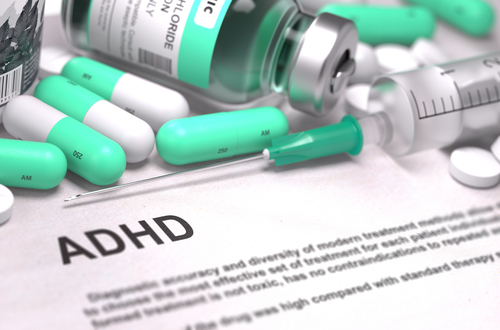It goes one of two ways: either the ADHD has been identified or the co-occurring disorders have been identified. For example, treating doctors are aware that there is a struggling with depression but fail to see the symptoms of ADHD. Conversely, they might notice the symptoms of ADHD but fail to identify the symptoms of anxiety.
80%
Eighty percent of people who have ADHD will eventually be diagnosed, or continue living with, a co-occurring psychiatric disorder. Substance use disorders are common for people with ADHD because of two key factors. First, ADHD is an impulsive disorder in which someone is unable to control their impulses for distraction. Second, the chaos and rapid loop thinking which can come from ADHD can feel unbearable at times. Drugs and alcohol provide a solace of calm, numbing out, or feelings of control over what feels like an uncontrollable mind. Additionally, ADHD tends to cause risk-taking behaviors and thrill seeking to match the excited experience of living with hyperactivity. Depression and anxiety are the two most common co-occurring disorders for ADHD. Also prevalent is obsessive compulsive disorder.
30%
Depression can be caused by ADHD for many reasons. Failing to meet deadlines, complete tasks successfully, chronically forget things, and lose sleep to unending thoughts, can cause depression. Thirty percent of people with ADHD are likely to experience depression or a depressive episode at least once in their life.
20-30%
Generalized anxiety disorder, social anxiety disorder, or other anxiety based disorder can come with ADHD. Twenty to thirty percent of people with ADHD will experience an anxiety disorder. Hyperactivity in the mind can lead to unpleasant thought processes and ideas. If someone is struggling to manage their thinking and routines, it can lead to persistent worrying.
50-60%
A majority of students with ADHD have other learning disabilities which can increase symptoms of depression, anxiety, stress, and other co-occurring psychiatric issues. Learning disabilities coupled with ADHD makes succeeding in school especially challenging, causing someone to feel different than and disadvantaged compared to their schoolmates.
The use of clinical scales by a licensed and trained psychiatrist is the most effective way to get an accurate diagnosis. If you or a loved one are struggling with any of these issues while also struggling with substance use disorder, call LEAD Recovery Center today. Our programs are open to men and women wanting to learn how to manage their co-occurring disorders. For more information, call (800) 380-0012.


